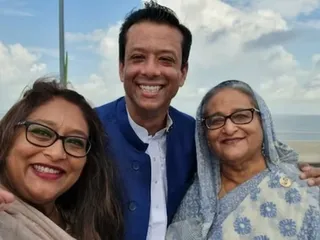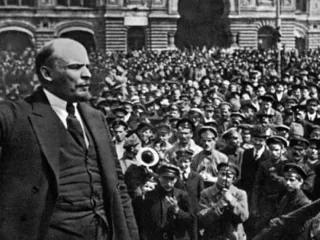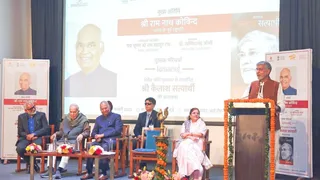Here are important tips to approach UPSC Economy preparation.

1. Start with the Basics: NCERTs and Core Textbooks
- NCERT Economics (Class 9-12) is essential for building foundational knowledge. Ensure you cover:
- Class 9: Indian Economic Development
- Class 11: Introductory Economics & Indian Economic Development
- Class 12: Macroeconomics & Indian Economic Development
- Once you're comfortable with basics, refer to Ramesh Singh's Indian Economy for in-depth coverage of Indian economic topics relevant for UPSC.
2. Follow Top Educators and Resources
- Mrunal Patel and Sriram IAS are some of the top educators known for simplifying economic concepts. You can follow Mrunal's website (mrunal.org) and YouTube lectures for detailed explanations, especially on topics like Macroeconomics and Fiscal policy.
- For video lectures, Unacademy and Byju's offer comprehensive courses on economics, frequently covering both Prelims and Mains level content.
- Additionally, Sriram IAS provides detailed notes and classes, especially useful for conceptual clarity on Indian Economy.
3. Economic Survey and Union Budget
- Economic Survey and Union Budget are crucial resources for understanding the government’s economic policies and objectives. Stay updated on both these documents every year.
- Mrunal’s Economic Survey summary and Budget analysis videos can help simplify this complex material.
4. Current Affairs
- Keep track of the latest economic developments via newspapers like The Hindu or Indian Express. Focus on topics like:
- 5 Trillion Economy Vision for India
- Digital Economy and Cashless Economy.
- Focus on BRICS nations, Global Financial System, and key global economic organizations like the WTO, IMF, and World Bank.
5. Use of Websites and Apps
- Arthapedia (an official platform by the Ministry of Finance) and CMIE (Centre for Monitoring Indian Economy) offer valuable insights into economic data and reports.
6. Focus Areas for Prelims and Mains
- For Prelims, focus on topics like:
- Basic concepts of Microeconomics and Macroeconomics.
- Monetary and Fiscal Policies.
- Government Schemes, Budget, and Economic Reforms.
- GDP, Inflation, Poverty, and Public Finance.
- For Mains, focus on applying theoretical knowledge to case studies and policy analysis. Learn to frame answers on topics like:
- Sustainable Development.
- Inclusive Growth.
- Public Private Partnerships (PPP), Agricultural Reforms.
- Global Trade and India's Foreign Trade Policy.
7. Previous Year Questions (PYQs)
- Solving PYQs for both Prelims and Mains is crucial to understand the exam's pattern. Websites like mrunal.org and Vision IAS have a comprehensive collection of Economics PYQs for practice.
- Pay special attention to UPSC Economics Prelims PYQs and Mains Economics PYQs to identify the most frequently asked topics.
8. Answer Writing Practice
- Economics, particularly for Mains, tests how well you can write structured and comprehensive answers. Practice writing answers for topics like Indian Economic Planning, Fiscal Deficit, Monetary Policy, and Poverty Alleviation Programs.
- Vision IAS Mains 365 and Mrunal’s Answer Writing series are great resources for this practice.
9. Key Books and Resources for In-Depth Study
- Ramesh Singh's "Indian Economy" is a go-to book for understanding the core of the Indian economy.
- Mrunal's Economy Notes: Excellent for covering topics in-depth, especially macroeconomic issues and current economic policies.
- "Economic Survey" by Drishti IAS and "Mains 365" (for 2022-2023) are essential tools for revision and practice.
10. Key Topics for UPSC Economics
- Macroeconomics: Inflation, monetary policy, fiscal policy, GDP, and national income accounting.
- Indian Economy: Agriculture, industry, services sector, trade and balance of payments.
- Financial Inclusion and Digital Economy.
- Public Finance and Taxation, Banking Reforms, and Monetary System.
- Sustainable Development Goals (SDGs) and their relation to India's economic growth.
- Global Economic Bodies and Trade: WTO, IMF, BRICS, etc.
11. Revision and Notes
- Create concise and structured notes during your preparation, focusing on definitions, key concepts, and policy changes.
- Regularly revise these notes, especially when close to the exam, for better retention.
12. Economics for Specific Topics
- $5 Trillion Economy Vision: Stay updated on government policies aimed at achieving the goal of making India a $5 trillion economy.
- Cashless Economy: Focus on financial inclusion programs, digital payments, and economic reforms supporting digital financial systems.
- Knowledge Economy: This is a growing topic related to how digitalization and innovation contribute to economic development.
Conclusion:
For effective preparation in UPSC Economics, focus on building a strong foundation through NCERTs, standard textbooks like Ramesh Singh, and regular updates on current economic policies via Mrunal and Sriram IAS. Solve previous years' questions (PYQs), practice answer writing, and keep up with developments in the global and Indian economic environment.


















